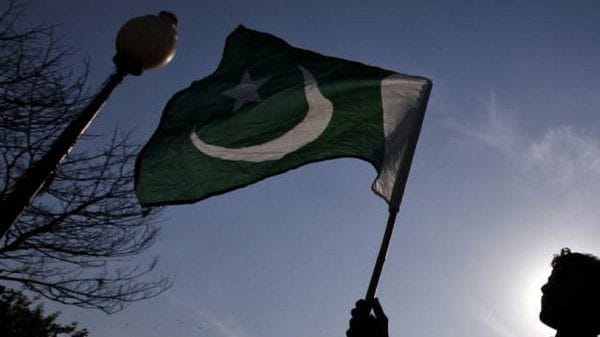New Delhi: The killing of the CEO of an Italian IT firm in Pakistan’s Karachi by an employee over unpaid wages has once again put a spotlight on the negative social impact a dwindling economy is causing on its workforce.
A Twitter user pointed out how ‘Financial stress, economic instability are pushing society to the edge’.
CEO Naveed Khan was stabbed to death by a former employee at the Euro Tech Software House office on Shahrah-e-Faisal road.
The man had a salary of 1,50,000 PKR and had not received any payment for the past three months. Stressed due to increasing medical expenses, he had an altercation with the CEO and stabbed him.
The incident highlights broader economic challenges faced by the Pakistani public that’s reeling under severe inflation, a sharp depreciation of the rupee, and dwindling foreign exchange reserves.
Speaking to ThePrint from Islamabad, economic analyst Javed Hassan said, “The business climate in Pakistan continues to be uncertain with low domestic and international investments. The uncertainties and forex constraints [also make] international investors relatively cautious. International companies investing in Pakistan find it hard to import raw materials due to Forex constraints and repatriating dividends.”
Pakistan has been experiencing its worst economic crisis in nearly 50 years, with inflation soaring to 38 per cent in May 2023—the highest in South Asia—making it hard for ordinary people to afford basic necessities.
“The GDP growth rate in Pakistan has been historically low. The salaried class is finding itself increasingly squeezed due to inflation, additional tax burden due to increased rates in the recent budgets, and higher tariffs on electricity and gas bills. There should have been an effort to widen the tax nets to include other sectors of the economy, and lessen the tax rates for the salaried class” he added.
Unprecedented economic challenges
Inflation soared last year due to Pakistan’s central bank adopting IMF-mandated exchange rate liberalisation, which caused a sharp depreciation of the rupee. The Pakistani rupee was Asia’s weakest currency in 2023 with a 20 per cent drop against the US dollar.
Hassan also stated that the Pakistani economy requires substantial reforms and structural changes to stimulate growth. Increased taxes and tariffs imposed on the middle class, along with the removal of GST exemptions, have led to higher prices for essential utilities.
“For instance, packaged milk now costs up to 50 to 60 rupees more per litre, making it as expensive in Islamabad as it is in Paris,” Hassan said.
According to a 2024 report on the state of Pakistan’s business economy, the country faces recurring economic crises due to insufficient domestic production, excessive spending, and heavy reliance on external debt and is facing its most severe economic challenge yet.
In 2023, Pakistan faced unprecedented economic challenges. The current crisis in Pakistan combines severe macroeconomic instability with political gridlock.
According to South Asia foreign policy expert Michael Kugelman, the crisis stemmed from delayed government responses and global factors like disruptions in the supply chain due to the pandemic and heightened global commodity prices following the Ukraine conflict.
The country teetered on the brink of default until a July agreement with the IMF averted disaster. However, IMF-imposed measures increased inflation, impacting the general public severely. Economic strains led to skilled workers, including doctors and accountants, fleeing the country.
A Brookings 2023 report, however, also states that despite attempts to secure loans from the IMF and Gulf nations to stave off default, Pakistan’s economy remains fundamentally unbalanced. Its unsustainable debt levels require a substantial restructuring in the economy to manage repayment obligations totalling $73 billion by 2025.
Hassan added that while the negotiations of the 24th IMF programme package are yet to be concluded, if the federal budget is in compliance with IMF, that would mean ‘very limited economic restructuring’.
Despite proposals for deregulation and improved policymaking from the Pakistan Institute of Development Economics (PIDE), Pakistan struggles with a neglected R&D sector and a failure to diversify into high-tech and value-added production.
Moreover, policymakers assert that Pakistan’s economic growth is hindered due to heavy government intervention and excessive regulation.
“To achieve sustainable high growth, Pakistan needs integrated reforms: a new social contract bridging elites and citizens, bold economic restructuring favoring investment and exports,” said a 2024 report on Pakistan’s economy.
(Edited by Prasanna Bachchhav)






